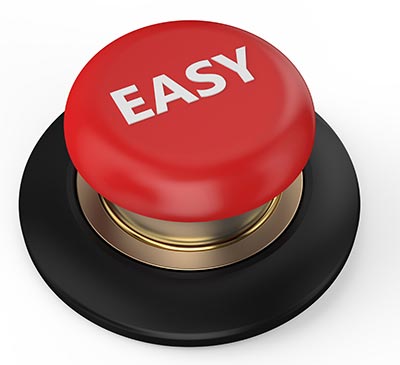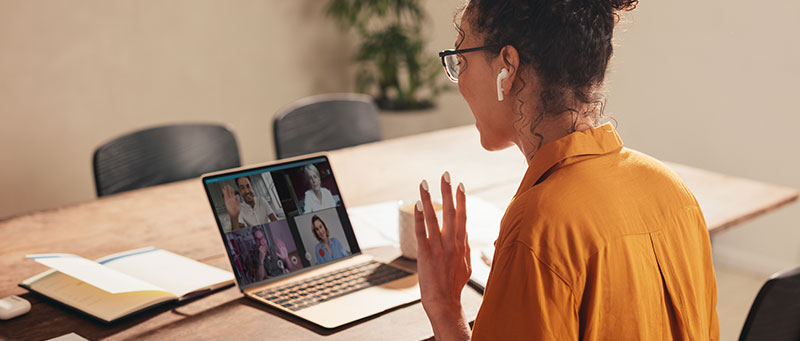How to become an effective leader starts with your containers.
I have a confession to make. I am obsessed with containers. Big or small, round or square, plastic or metal—they fascinate me. I’ve always attributed this obsession to my need to be well-organized. After all, who doesn’t enjoy opening the pantry door and seeing crackers, nuts, and baking products all stacked neatly in containers? (Please tell me I’m not alone in this!)
The precision of it all fills my heart with joy, and I’ve come to realize that this container obsession doesn’t just happen in my pantry. It shows up in other areas of my life, too.
My brain, for instance, has a nice lineup of containers filled with long-held beliefs. Some of those beliefs serve me well, but others should have been removed from those brain containers long before I finally made the decision to do so.
Case in point: my leadership brain container. For years I had hung onto beliefs that had held me back from being an effective leader. I’d followed many of the lessons I learned in school and brought them with me into my career. Lessons like:
- The ultimate goal is to get the right answer. Mistakes are for the weak.
- My time is managed by others—the daily schedule, the meetings, the expectations.
- My overall success in my role is in the hands of others. Promotions and salary increases are awarded, and I accept what comes my way.
- Investing in myself—for the sake of learning, growing, and being my very best self—isn’t possible. My salary is fixed, and improving myself doesn’t fall under the “necessary” column. Besides, shouldn’t my employer be footing the bill for my development?
It’s embarrassing to think of the beliefs I’d kept safely tucked away in this brain container and even more embarrassing to now share those flawed beliefs with others. I believe the sharing is important, though. If I hadn’t become aware of the beliefs that were keeping me stuck, I’d still believe that my ultimate success as a leader was in the hands of someone other than myself.
I now know the opposite is true.
In order to lead others effectively, I must lead myself first.
One of my favorite stories to share with clients comes from Sara Blakely, founder of Spanx. As a child, she and her family had dinner together every night, and at each meal her dad would ask her what failures she had experienced that day and what she had learned from them. When Sara had dinner at a friend’s house, she noticed the discussion focused on getting an A on the math test or being chosen to lead the student body in an assembly. Sara’s dad taught her from a young age that success begins with failures. We develop resilience and tenacity as we fail, learn, fail again, and learn some more.
My mistakes are opportunities.
Mistakes are necessary, and learning from them is an important piece of the intentional process of leading myself first.
Responsibility is another key area of leading myself first and one I’ve worked on a great deal. My old beliefs put my results—and the achieved success or lack thereof—in the hands of others. I took no ownership of my time, my desired goals, or my personal and professional development. I waited for things to be handed to me—the good and the bad— and then went into blame mode when I didn’t get what I wanted. Looking back now, I see how immature I was. When I ask myself why I would have functioned in that way, I again think of the “lessons” I had followed in my life. The framework they created was how I thought the world worked even though that framework held me back time and time again.
I am responsible for me.
I’ve done such a 180 with this part of who I am that now I regularly and automatically ask myself: What is my part in this, and what influence do I have to improve my current results? I made a decision to move out of the passenger seat of my life and into the driver’s seat. I no longer wait for things to happen to me. And I don’t blame other people and circumstances for the results I experience. Instead, I keep my hands on the steering wheel and continue to guide myself toward what I want. I take responsibility, and I lead myself first.
Investing in myself also looks much different now because when I commit to improving myself—and I invest time, money and effort to do so—I win. Every time. When I say yes to experts and I pay for the services they provide, I say yes to the mistakes I’ll make along the way. I say yes to the time I’ll spend learning. I say yes to the charge on my credit card. I say yes to stretching my brain in ways I haven’t before. I say yes to never saying, “I don’t know,” when it gets hard. And I say yes to the successes I’ll achieve; the lessons I’ll learn; the determination I’ll gain; and the end result I came for. I show up for myself every time, and I win every time. It’s my privilege to invest in myself. And each time I do, I’m grateful to have learned this valuable lesson that helps me lead myself first.
My leadership brain container is now as clean and organized as that pantry I love so much. The old beliefs that kept me stuck have been replaced. I now understand what courageous leadership is; how to be the leader others want to follow; and the great benefit of leading myself first so I can, in turn, more effectively lead others.
Want to learn more about your strengths in leading yourself first? I’m currently offering the Lead Yourself First assessment and review discussion for just $100. Take that first step in leading yourself, and be that leader others want to follow!




